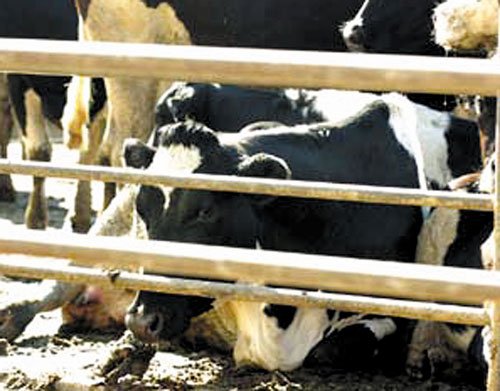The carcass of a dairy cow with mad cow disease is being held at a processing facility near Hanford, Calif., company officials confirmed Tuesday afternoon.
The cow was taken from an undisclosed dairy in Central California to the Baker Commodities transfer station east of Hanford.
Earlier Tuesday, federal agriculture officials confirmed the mad cow disease case. They said the cow was not scheduled for slaughter for human consumption and did not pose a risk to the food supply or human health. Milk does not transmit the disease.
It is the fourth confirmed case nationwide of the disease, also known as bovine spongiform encephalopathy, or BSE. The carcass will be destroyed, officials said.
“Evidence shows that our systems and safeguards to prevent BSE are working, as are similar actions taken by countries around the world,” said John Clifford, chief veterinary officer for the U.S. Department of Agriculture. “In 2011, there were only 29 worldwide cases of BSE, a dramatic decline and a 99 percent reduction since the peak in 1992 of 37,311 cases.”
At a news conference in Washington, D.C., Clifford did not say when the disease was discovered or exactly where the cow was raised. He said the case was discovered through regular USDA sample testing.
Mad cow disease can be fatal to humans who eat tainted beef. The disease is always fatal in cattle. There had been three confirmed cases of BSE in the United States – in a Canadian-born cow in 2003 in Washington state, in 2005 in Texas and in 2006 in Alabama.
The Agriculture Department is sharing its lab results with international animal health officials in Canada and England, Clifford said. He said the California cow is an atypical case in that it didn’t get the disease from eating infected cattle feed.













